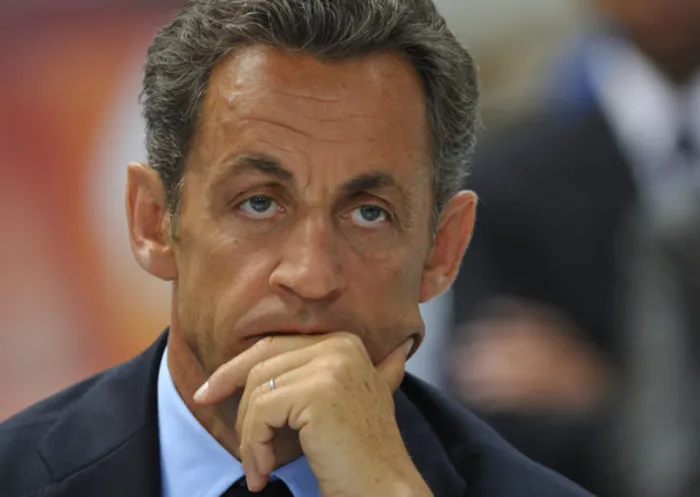Regulating the internet is big business

French President Nicolas Sarkozy. French President Nicolas Sarkozy.
Paris - If President Nicolas Sarkozy thought he could use France's chairmanship of the Group of 8 to advance his campaign to regulate the internet and to hand back power to giant corporate copyright holders, his plan seems to have backfired.
On the evidence of Tuesday’s e-G8 gathering of technology leaders in Paris, he has managed to enrage and embolden his opponents.
France has been out on a limb with its tough sanctions against individuals who download pirated music and video, for example, and with the pressure it has piled on internet service providers to regulate what their customers use the internet for. Even the UK, which has flirted with such legislation, has not gone as far.
But President Sarkozy has put his view of a regulated internet on the agenda at the G8, albeit indirectly. The e-G8, with 1,500 participants including Mark Zuckerberg of Facebook, Eric Schmidt of Google and Wikipedia founder Jimmy Wales, has been charged with coming up with some conclusions to the myriad debates raging about internet security, privacy, copyright protection, and freedom of expression.
These “conclusions” will then be presented as the basis for debate at the G8 heads of state summit in Deauville tomorrow and on Friday.
For anyone who thinks that G8 events are little more than expensive talking shops (and how true is that, now that real power has shifted to the G20?), then the e-G8 really takes the croissant.
What will these 1,500 be able to agree on, other than boilerplate assertions that the internet has ushered in a revolution and must be “protected” - whatever that means.
President Sarkozy, something of an international villain among the tech community, attempted some soaring rhetoric about the “universe of possibilities” but what he was really there to deliver was a lecture to technology company bosses and internet freedom campaigners. “Governments are the legitimate guardians of our societies and do not forget this,” he said. “You must know our red lines.”
The president was challenged on these issues to his face - US media commentator Jeff Jarvis challenged him to sign an oath to “do no harm” to the internet - and later by some powerful speakers, including Mr Schmidt.
The problems with imposing great new layers of regulation on the internet, let alone international regulation, are manifold. We should be more concerned about the powers that governments already have, in light of what we have learnt from the Arab Spring about dictators' ability to disrupt or even switch off the web in what they deem to be a crisis.
In practice, adjusting the delicate ecosystem of the internet that has served so well for decades is likely to benefit big corporations and entrenched rights holders to the detriment of small or new businesses. These empowered internet service providers, becoming agents of government, could be the censors and monopolies of the future, and are bound to stifle the next generation of disruptive technologies.
It would be pleasing if the G8 were to adopt one of the Brazilian government's “principles for the governance and use of the internet”, which says: “All action taken against illicit activity on the network must be aimed at those directly responsible for such activities, and not at the means of access and transport, always upholding the fundamental principles of freedom, privacy and the respect for human rights.
More likely, the dissension at the e-G8 will simply make the G8 leaders wary of treading into this territory at all. Given the direction President Sarkozy is trying to push them, let's hope so.
There didn't seem much interest from short-sellers in laying bets against LinkedIn shares, despite it being the first day after the social network's flotation last week that shorting was allowed. Too little stock is available to borrow and, with all the signs pointing to a second dot.com bubble, placing large wagers on the shares falling is probably a mug's game.
Better to ride the wave rather than try to hold back the tide, investors seem to have decided. It is no surprise, then, that interest in the flotation of Yandex, Russia's leading search engine, should have spiked after the LinkedIn debut. There were 17 times more orders for Yandex stock than there were shares available, so bankers did what they had to and increased the price.
A deep dig into the Yandex prospectus reveals that its own bankers valued the shares at less than $9 (about R60) apiece last November. The justification for recommending them at three times that price stems from an optimistic new research report, commissioned by the company itself, which suggests explosive growth in the numbers of Russians getting connected to the internet between now and 2015. Oh, and the spike in oil prices. This, so the pitch goes, will mean more export revenue flowing into Russia, boosting the economy and therefore spending on online advertising.
We'll see. It may be as well to watch just as closely for the things that can go wrong. Chief among these risk factors is the pending presidential election next year, which even Yandex warns “creates a degree of political and commercial uncertainty, which may adversely affect our ability to implement our business plan”.
Google is branching out into new ventures with its operating systems for mobile phones and PCs, and building a powerful display-ads business, too, all reasons why it should be considered to have the more valuable prospects of the pair. The pricing of Yandex is all wrong, and I blame LinkedIn. But this isn't the first time we have been scratching our heads during this tech boomlet - and it won't be the last. - The Independent